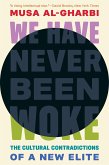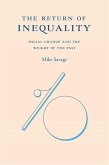What equality means in three modern democracies, both to leaders of important groups and to challengers of the status quo, is the subject of this wide-ranging canvass of perceptions and policy. It is based on extensive questionnaire data gathered from leaders in various segments of society in each countrybusiness, labor unions, farm organizations, political parties, the media-as well as from groups that are seeking greater equalityfeminists, black leaders in the United States, leaders of the Burakumin in Japan. The authors describe the extent to which the same meanings of equality exist, both within and across nations, and locate the areas of consensus and conflict over equality. No other book has compared data of this sort for these purposes.
The authors address several major substantive and theoretical issues: the role of values in relation to egalitarian outcomes; the comparison of values and perceptions about equality in economics (income equality) and politics (equality of influence); and the difference among the nations in the ways political institutions affect the incorporation of new demands for equality into the policymaking process. They pay particular attention to how policy is set on issues of gender equality.
This book will be controversial, for some see no room in the understanding of political economy for the analysis of values. It will be consulted by a general audience interested in politics and culture as well as by social scientists. Elites and the Idea of Equality is an informative sequel to Equality in America by Sidney Verba and Gary R. Orren (Harvard University Press), which considers similar topics in a national context.
The authors address several major substantive and theoretical issues: the role of values in relation to egalitarian outcomes; the comparison of values and perceptions about equality in economics (income equality) and politics (equality of influence); and the difference among the nations in the ways political institutions affect the incorporation of new demands for equality into the policymaking process. They pay particular attention to how policy is set on issues of gender equality.
This book will be controversial, for some see no room in the understanding of political economy for the analysis of values. It will be consulted by a general audience interested in politics and culture as well as by social scientists. Elites and the Idea of Equality is an informative sequel to Equality in America by Sidney Verba and Gary R. Orren (Harvard University Press), which considers similar topics in a national context.
An excellent pathway to consider allocation decisions in different types of welfare states. Government officials, social scientists, and individuals concerned with the future direction of industrial societies will find this book thoughtful and provocative.
This research program has produced and extraordinarily stimulating set of results. But its chief virtue is that it posed conceptually and then pursued empirically the kinds of very broad questions about a central issue in society that are, by definition, bypassed in more narrowly focused research.
Verba and his colleagues have done a fine job of gathering and analyzing data that call seriously into question both the Marxist view that bourgeois societies will inevitably tolerate great income differences and the Tory fear that democracy will inevitably lead to leveling and expropriation...[They] make a convincing case that the U.S. income distribution is as it is in large part because that is the way political elites--even relatively leftist ones--prefer it to be.
With this book [Sidney Verba] adds to his series of stimulating and influential studies of values and political life...One wishes that more books in political science these days had a subject as crucial to political life, as rich in comparative empirical data, as creative and sophisticated in methodological approaches, and as original and significant in its insights.
This research program has produced and extraordinarily stimulating set of results. But its chief virtue is that it posed conceptually and then pursued empirically the kinds of very broad questions about a central issue in society that are, by definition, bypassed in more narrowly focused research.
Verba and his colleagues have done a fine job of gathering and analyzing data that call seriously into question both the Marxist view that bourgeois societies will inevitably tolerate great income differences and the Tory fear that democracy will inevitably lead to leveling and expropriation...[They] make a convincing case that the U.S. income distribution is as it is in large part because that is the way political elites--even relatively leftist ones--prefer it to be.
With this book [Sidney Verba] adds to his series of stimulating and influential studies of values and political life...One wishes that more books in political science these days had a subject as crucial to political life, as rich in comparative empirical data, as creative and sophisticated in methodological approaches, and as original and significant in its insights.








